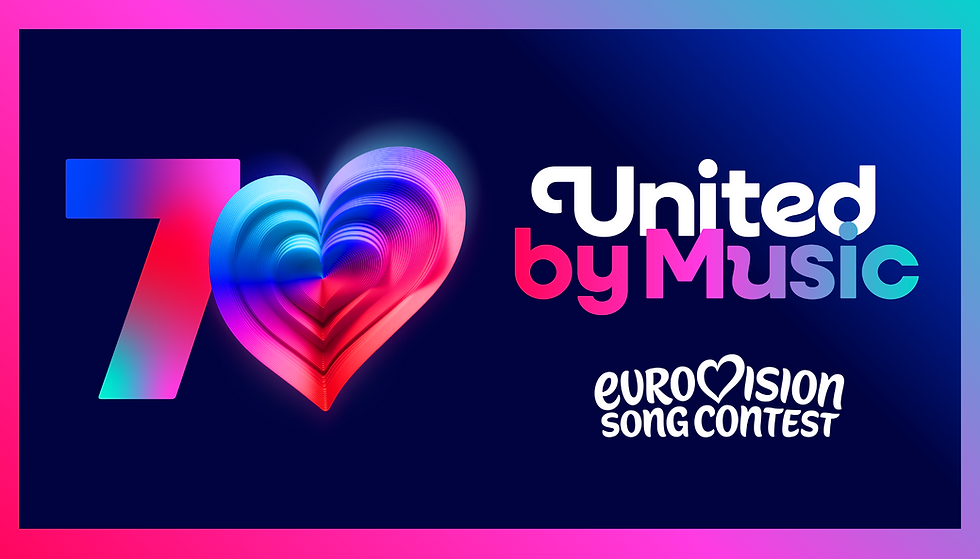Eurovision Fan Survey 2021 - who is the average fan?
- aussievision

- Feb 2, 2021
- 3 min read

Our third annual survey of Eurovision fans across the globe has been completed for another year.
We have crunched the numbers and over a series of articles we'll look at who make up the fandom, what their views on the Contest are and how Aussie and other Eurofans differ.
This year we received 408 responses from fans in 50 countries with the most "typical" fan being:
Single
Male
18-24
LGBTIQ+
This is the same as our last survey, but of course there is much more to know about fans that those top lines results.
Let's take a look at the results more closely:
Where were they from?
Being an Australian driven fan site, it's no surprise to see Australia high in the responses. However, Europe made up the highest numbers, with those from Australia next, while Rest of the World increased participation particularly from Asia Pacific nations.
Europe - 244
Australia - 126
Rest of the Word - 57
The countries with the most participants were:
Australia - 106
United Kingdom - 105
United Stats - 21
Spain - 13
Germany - 12
Ireland - 11
Canada - 9
France - 9
Greece - 7
Portugal - 7
Kazakhstan - 6
Norway - 6
Philippines - 6
Poland - 6
Turkey - 6
Demographics
Respondents were more likely to be young (44% were under 25), male (63%), single (62%) and from the LGBTIQ+ community (65%).
This is very closely aligns with our last survey but there have been some notable changes:
25-34 year-olds up 4% to 27%
Female participation up 3% to 35%
Married participants down 6% to 11%
Less people who identify as gay down 5% to 40%
Bisexual participants up 5% to 17%
More participants using their own labels to describe their sexual orientation up 2% to 5%
Whether these identify shifts in those taking part, the fandom as a whole or societal changes it's an unknown without delving deeper.
Full results:

Under 18 – 6%
18-24 – 38%
25-34 – 27%
35-44 – 14%
45-54 – 11%
55+ - 4%
Gender
Male - 63%
Female - 35%
Non-binary - 2%
Relationship status
Single – 63%
Relationship/Defacto – 26%
Married – 11%
Widowed - 0.2%
Sexual Orientation
Heterosexual – 35%
Gay – 40%
Bisexual – 17%
Lesbian – 3%
Other sexuality (Asexual, Queer, Pan) – 5%
So we know who they are, but what are they interested in?
We asked Eurovision fans to rate their interest in certain topics from 'very interested' down to 'no interest'. In terms of ‘very interested’ these topics were highest among fans:

Despite COVID-19 restrictions travel is still a favourite among fans with 52% (+1%) very interested in it. Pop music climbs to second place with 45% very interested (+7%) and geography was 3rd with 41% (+5%).
Travel, pop music and geography - who would have though Eurovision fans would be into that!
Full results:
Travel - 52%
Pop Music - 45%
Geography - 41%
Languages - 39%
Politics - 36%
Quiz/Trivia - 36%
Pop culture - 31%
History - 28%
Reading - 24%
Olympics - 24%
Football World Cup - 16%
Cinema/Oscars - 16%
Gaming - 15%
Football general - 14%
Tennis - 9%
Athletics - 6%
Basketball - 1%
Despite dropping from 2nd to 4th, Language stayed steady at 39% with politics next. Again both feature very heavily at Eurovision.
And again this year, sports were not very high but the large scale events around them (Olympics and World Cup) did feature quite strongly.
This correlates with the large scale event and competitive nature of Eurovision.
How and when did fans get into the contest?
We asked fans how they were introduced to the contest. And apart from general promotion, family and friends were high, particularly parents. Some children are being raised correctly!
General promotion – 37%
Parents – 37%
Friends – 10%
Other family – 7%
Artist competing – 6%
Teacher – 2%
Partner – 1%
Additionally we looked at which year they considered themselves to become a fan. This was the trend line over time:

And the most popular years were:
2015 - 29
2014 - 23
2018 - 22
2012 - 21
2010 - 20
2016 - 20
2003 - 19
2011 - 19
2006 - 17
2007 - 17
2009 - 17
1990, 1999, 1981 and 1998 were the most popular from the 20th century.
So this is our first snapshot on who fans are, what their interests are and how they got into the contest.
In our next article in this series we will look at how they interact with Eurovision. What they take part in, what they think of it and interestingly who they think should be participating.



google 优化 seo技术+jingcheng-seo.com+秒收录;
Fortune Tiger Fortune Tiger;
Fortune Tiger Fortune Tiger;
Fortune Tiger Fortune Tiger;
Fortune Tiger Slots Fortune…
站群/ 站群
gamesimes gamesimes;
03topgame 03topgame
EPS Machine EPS Cutting…
EPS Machine EPS and…
EPP Machine EPP Shape…
Fortune Tiger Fortune Tiger;
EPS Machine EPS and…
betwin betwin;
777 777;
slots slots;
Fortune Tiger Fortune Tiger;
google seo…
03topgame 03topgame;
gamesimes gamesimes;
Fortune Tiger…
Fortune Tiger…
Fortune Tiger…
EPS Machine…
EPS Machine…
seo seo;
betwin betwin;
777 777;
slots slots;
Fortune Tiger…
seo优化 SEO优化;
bet bet;
谷歌seo优化 谷歌SEO优化;
Fortune Tiger Fortune Tiger;
Fortune Tiger Fortune Tiger;
Fortune Tiger Slots Fortune Tiger Slots;
Fortune Tiger Fortune Tiger;
Fortune Tiger Fortune Tiger;
Fortune Tiger Slots Fortune Tiger Slots;